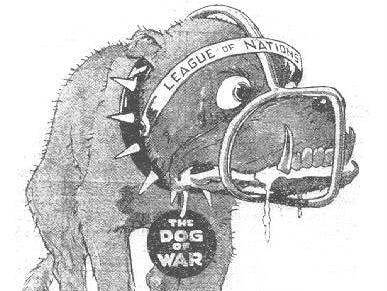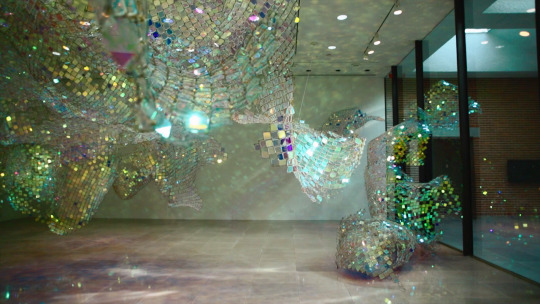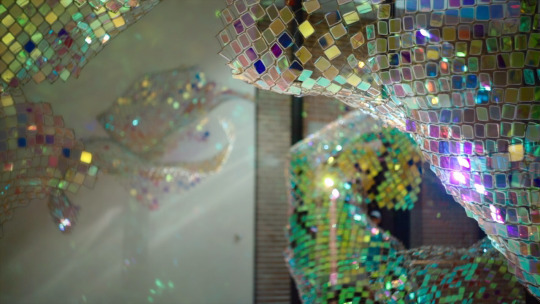Freelance serendipidist and reborn feminist. Interested in politics, environment and people. I blog and reblog things I find curious, interesting and inspiring.
Don't wanna be here? Send us removal request.
Text

Subhash Nair - Wildlife & Nature Photography
The Galaxy Froge Shot from western ghats of Kerala
378 notes
·
View notes
Text
On sensitivity readers, weakness, and staying alive.
The other day I was part of a Twitter conversation begun by a fellow-author on the subject of sensitivity readers, in which he said that no serious author would use sensitivity readers, and spoke of work being “sanitized”. The conversation devolved, as it often does on Twitter, but it got me thinking. It must have got someone else thinking too, because a journalist from the Sunday Times got in touch with me the next day, and asked me to share my ideas on the subject. Because I have no control over how my words are used in the Press, or in what context they might appear, here’s more or less what I told her.
I think a lot of people (some of them authors, most of them not) misunderstand the role of a sensitivity reader. That’s probably mostly because they’ve never used one, and are misled by the word “sensitivity”, which, in a world of toxic masculinity, is often mistaken for weakness. To these people, hiring someone to check one’s work for sensitivity purposes implies a surrendering of control, a shift in the balance of power.
In some ways, I can empathize. Most authors feel a tremendous sense of attachment to their work. Giving it to someone else for comment is often stressful. And yet we do: we hand over our manuscripts to specialists in grammar, spelling or plot construction. We allow them to comment. We take their advice. We call these people editors and copy-editors, and they are a good and necessary part of the process of being an author. Their job is to make an author’s work as accurate and well-polished as possible.
When writing non-fiction, authors sometimes use fact-checkers at the editorial stage, to make sure that no embarrassing factual mistakes make it into print. This fact-checking is a normal part of the writing process. We owe it to our readers to be as accurate as possible. No-one wants to look as if they don’t know what they’re talking about.
That’s why now, increasingly, when writing about the lives and experiences of others, we sometimes use readers with different specialities. That’s because, however great our imagination, however well-travelled we may be and however many books we have read, there will always be gaps in our knowledge of the way other people live, or feel, or experience the world. Without the input of those with first-hand knowledge, there’s always a danger we will slip up. That’s why crime writers often consult detectives when researching their detective fiction, or someone writing a hospital drama might find it useful to talk to a surgeon, or a nurse, or to someone with the medical condition they are planning to use in their narrative. That’s why someone writing about divorce, or disability, or being adopted, or being trans, or being homeless, or being a sex worker, or being of a different ethnicity, or of a different culture – might find it useful to take the advice of someone with more experience.
There are a number of ways to do this. One of my favourites is The Human Library, which allows subscribers to talk to all kinds of people and ask them questions about their lives (Check them out at https://humanlibrary.org/). The other possibility is to hire a specialist sensitivity reader to go through your manuscript and check it. Both can be a valuable resource, and I doubt many authors would believe that their writing is sanitized, or diluted, or diminished by using these resources.
And yet, the concept of the sensitivity readers – which is basically another version of the specialist editor and fact-checker – continues to cause outrage and panic among those who see their use as political correctness gone mad, or unacceptable wokery, or bowdlerization, or censorship. The Press hasn’t helped. Outrage sells copies, and therefore it isn’t in the interest of the national media to point out the truth behind the ire.
Let’s look at the facts.
First, it isn’t obligatory to use a sensitivity reader. It’s a choice. I’ve used several, both officially and unofficially, for many different reasons, just as I’ve always tried to speak to people with experience when writing characters with disabilities, or from different cultures or ethnic groups. I know that my publisher already sends my work to readers of different ages and from different backgrounds, and I always run my writing past my son, who often has insights that I lack.
Sensitivity reading is a specialist editorial service. It isn’t a political group, or the woke brigade, or an attempt to overthrow the status quo. It’s simply a writing resource; a means of reaching the widest possible audience by avoiding inaccuracy, clumsiness, or the kind of stereotyping that can alienate or pull the reader out of the story.
Sensitivity readers don’t go around crossing out sections of an author’s work and writing RACIST!!! in the margin. Usually, it’s more on the lines of pointing out details the author might have missed, or failed to consider: avoiding misinformation; suggesting authentic details that only a representative of a particular group would know.
Authors can always refuse advice. That’s their prerogative. If they do, however, and once their book is published, they receive criticism or ridicule because their book was insufficiently researched, or inauthentic, or was perceived as perpetuating harmful or outdated stereotypes, then they need to face and deal with the consequences. With power comes responsibility. We can’t assume one, and ignore the other,
Being more aware of the experiences of others doesn’t mean we have to stop writing problematic characters. Sensitivity reading isn’t about policing bad behaviour in books. It’s perfectly possible to write a thoroughly unpleasant character without suggesting that you’re condoning their behaviour. Sensitivity is about being more authentic, not less.
People noticed bigotry and racism in the past, too. Some people feel that books published a hundred years ago are somehow more pure, or more free, or more representative of the author’s vision than books published now. You often hear people say things like: “If Dickens were around today, he wouldn’t get published.”
But Dickens is still published. We still get to read Oliver Twist, in spite of its anti-Semitism. And those who believe that Dickens’ anti-Semitism was accepted as normal by his contemporaries probably don’t know that not only was he criticized by his peers for his depiction of Fagin, he actually went back and changed the text, removing over 200 references, after receiving criticism by a Jewish reader. And no, it wasn’t “normal” to be anti-Semitic in those days: Wilkie Collins, whose work was as popular as Dickens’ own, managed to write a range of Jewish characters without relying on harmful and inaccurate stereotypes.
But it isn’t automatic that a book will survive its author. Books all have shelf lives, just as we do, and Dickens’ work has survived in spite of his anti-Semitism, not because of it. The work of many others has not. Books are for readers, and if an author loses touch with their readers - either by clinging to outdated tropes, or using outdated vocabulary, or having an outdated style – then their books will cease to be published, and they will be forgotten. It happens all the time. What one generation loves and admires may be rejected by the next. And the language is always changing. Nowadays, it’s hard to read some books that were popular 100 years ago. Styles have changed, sometimes too much for the reader to tolerate.
Recently, someone on tumblr asked about my use of the word “gypsy” in Chocolat, and whether I meant to have it changed in later editions. (River-gypsies is the term I use in connection with Roux and the river people, who are portrayed in a positive light, although they are often victims of prejudice.) It was an interesting question, and I gave it a lot of thought. When I wrote the book 25 years ago, the word “gypsy” was widely used by the travelling community, and as far as I knew, wasn’t considered offensive. Nowadays, there’s a tendency to regard it as a slur. That’s why I stopped using it in my later Chocolat books. No-one told me to. It was my choice. I don’t feel as if I’ve lost any of my artistic integrity by taking into account the fact that a word has a different resonance now. On the other hand, I don’t feel that at this stage I need to go back and edit the book I wrote. That’s because Chocolat is a moment in time. It uses the language of the moment. Let it stand for as long as it can.
But I don’t have to stay in one place. I can move on. I can change. Change is how we show the world that we are still alive. That we are still able to feel, and to learn, and to be aware of others. That’s what “sensitive” means, after all. And it is nothing like weakness. Living, changing, learning – that’s hard. Playing dead is easy.
4K notes
·
View notes
Text
NASA released the clearest pictures yet of our neighbours in the solar system







Oh and of course us

Honourable mention

86K notes
·
View notes
Text
part of the reason i love how bell hooks talks about masculinity is that she shows real compassion towards men suffering from the effects of toxic masculinity. she was conscious of how we need to unlearn the ways we talk about men + masculinity just as much as we need to unlearn the same for women + femininity. so many times ill see someone talking about toxic masculinity like (hyperbolizing here but only slightly) “these FUCKING STUPID BABY BITCHES won’t MAN UP and go to a therapist!!!” and like. i get the anger. but you see feminists recreating patriarchal manhood by only promoting good behaviors through patriarchal frameworks. any use of the term “real men” is bad because it reifies the idea that manhood is a special title you must earn, and it is something possible to fail and fake. & as important as it is to promote sexual equality + the pleasure of non-cis-men, lots of people are essentially still working with the idea that men need sexual prowess to have worth but just shifting it slightly so there is more emphasis on women’s pleasure. but I want cis men to think about their partners’ pleasure because they care about their partners, not because they need to check a box in order to keep their man card. and don’t get me started on small dick jokes– and the absolutely pitiful excuse people will use that “well, I don’t believe it, but misogynistic men get upset when I say it, so it’s okay!”
basically bell hooks is so fucking right. in order to create loving men we need to love men, simply for being alive, whether or not they are performing. as much as we need to actively unlearn misogyny (and we do), it’s equally vital we unlearn patriarchal ways of seeing manhood. we can’t just assume that taking a feminist perspective automatically means there is no work to be done there.
22K notes
·
View notes
Text
'Why is Trump taking us into war with Iran?
It’s possible that he believes the attacks give him more bargaining leverage with Iran. But a more likely explanation is that the attacks fit perfectly with Trump’s desire to divert attention from his multiple failures at home: the on-again-off-again tariffs that have spooked financial markets while eliciting no meaningful concessions from other nations (especially China). An immigration crackdown that’s been stymied by federal judges. The so-called “big beautiful bill” that’s in deep trouble in the Senate. Trump’s embarrassing tiff with Musk. His failures to achieve peace in either Ukraine or Gaza. And last weekend’s record-breaking “No Kings” demonstrations as compared to his scrawny military parade.'

The Dogs of War https://robertreich.substack.com/p/the-dogs-of-war
175 notes
·
View notes
Photo








378K notes
·
View notes
Text

GIRAFFE ATTENTION
Kuda and Sky sharing the same frame, from The Day May Break, a new book by Nick Brandt. The photographer adds: "I never expected Sky, the giraffe, to lower her head down towards Kuda."
facebook.com/NickBrandtPhotography
Photographed in Zimbabwe and Kenya in late 2020, The Day May Break portrays people and animals that have been impacted by environmental degradation. The people were all affected by climate change, displaced by cyclones and years-long droughts. The animals were rescues in sanctuaries that can never be rewilded. As a result, it was safe for human strangers to be close to them.
credit: Amazing Nature
#the day may break#environment#climate change#animal rescue#human animal relationship#gorgeous photo
73 notes
·
View notes
Text
It is the only surviving fragment of a lost medieval manuscript telling the tale of Merlin and the early heroic years of King Arthur's court. In it, the magician becomes a blind harpist who later vanishes into thin air. He will then reappear as a balding child who issues edicts to King Arthur wearing no underwear. The shape-shifting Merlin – whose powers apparently stem from being the son of a woman impregnated by the devil – asks to bear Arthur's standard (a flag bearing his coat of arms) on the battlefield. The king agrees – a good decision it turns out – for Merlin is destined to turn up with a handy secret weapon: a magic, fire-breathing dragon.
4K notes
·
View notes
Text





MISS FISHER'S MURDER MYSTERIES (2012–2015) — 2x02 "Death Comes Knocking"
bonus:


285 notes
·
View notes
Text

NASA just dropped the closest image ever taken of Jupiter.
22K notes
·
View notes
Text

Mike S. Photography
Aurora Borealis, Three Sisters
Canmore, Alberta Canada
60 notes
·
View notes
Text
oh. i just found out that the writer of the vincent van gogh doctor who episode wrote it as a tribute to his sister.
78K notes
·
View notes
Note
Hey, you reblogged that AI post and I was surprised to see something so mean on your blog. "If you cant write unassisted, fuck you, youre a disgrace to the community." Is that really something you want on your blog?
Just in case this isn't a spam message:
Posting AI-generated content to a platform intended to be an archive for writers is not appropriate use of the platform. On a platform intended for human creation, it is rude and inappropriate to clog search results with AI-produced content which often plagiarizes the work of human authors.
Use of generative AI is also horrible for our environment, leading to massive waste of fossil fuel energy and water. We should not be doing damage to our planet for the sake of generating (robot-produced, often plagiarized) fiction, especially when the joy of fiction comes from the creation and emotion of real people.
Rather than giving a prompt to a generative AI, people should consider attempting to write their own work, or asking another writer from the fandom if they would be interested in writing it. Anyone who is capable of typing a prompt into ChatGPT is capable of writing a story. The first attempts may not be amazing, but that is true of any skill, and anyone can improve with time and practice - and while ChatGPT may give you big returns in your time, it doesn't give you practice, growth, or creativity, which is where the joy of writing should come from.
22K notes
·
View notes
Text

'The Poems of Edgar Allan Poe' illustrated by W. Heath Robinson, 1900
601 notes
·
View notes
Text

just wanted to share the National Down Syndrome Society’s message for this year’s World Down Syndrome Day (21st March) 💛💙
82K notes
·
View notes
Text
Okay, here’s a new one.
In a new paper published in Physical Review D, the researchers propose a new model for the origin of the Universe - claiming that its formation is the result of a gravitational collapse that generated a massive black hole, followed by a ‘bounce’ inside, which means that our universe may have emerged from the interior of a black hole formed within a larger parent universe. They are calling the new model the ‘Black Hole Universe’, offering a radically different view of cosmic origins which is grounded entirely in known physics and observations The paper suggests that rather than the birth of the Universe being from nothing, it is the continuation of a cosmic cycle - one shaped by gravity, quantum mechanics, and the deep interconnections between them. While the existing standard cosmological model, based on the Big Bang and cosmic inflation, has been successful in explaining the structure and evolution of the Universe, it leaves some fundamental questions unanswered. Professor Gaztanaga said: “The Big Bang model begins with a point of infinite density where the laws of physics break down. This is a deep theoretical problem that suggests the beginning of the Universe is not fully understood. “We’ve questioned that model and tackled questions from a different angle - by looking inward instead of outward. Instead of starting with an expanding Universe and asking how it began, we considered what happens when an overdensity of matter collapses under gravity.”
(See also "Kicking The Can Up/Down The Road", Universe Creation variant...)
649 notes
·
View notes
